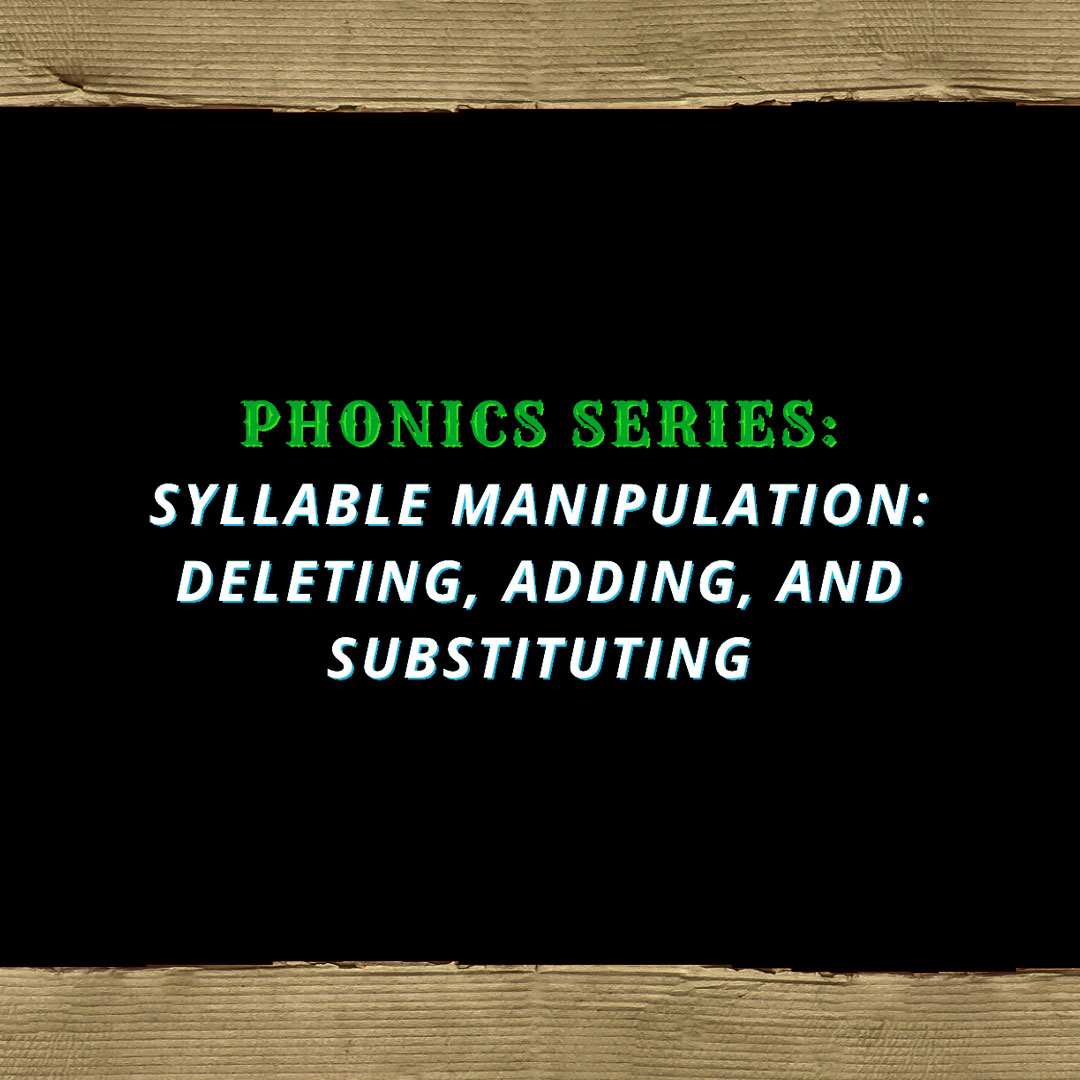Understanding syllables is incredibly important for reading skills since students must recognize how words made of different parts can be decoded and blended with other elements to decode a word. Likewise, this ability to blend, segment, and manipulate syllables in a spoken language determines how to do so with written words.
Phonemic awareness is the highest level of phonological awareness. Therefore, kids should understand that words are made of individual phonemes and sounds. Then, they can create new words by manipulating, segmenting, and blending individual phonemes within those words.
Manipulation is a higher phonemic awareness skill since it includes more advanced ones, like phoneme addition, deletion, and substitution. All three make phoneme manipulation, which is typically more challenging for kids to grasp than segmenting and blending phonemes. However, phoneme manipulation is a natural level up for kids who have mastered phoneme segmentation and blending. They are required to isolate specific phonemes, add, delete, or substitute specific phonemes, and then blend them back together to create a new word.
There are different ways to break down spoken language; sentences into words, words into syllables (onset and rime), and individual phonemes.
Phoneme Addition
This part is relatively simple. Phoneme addition is the process of introducing phonemes to a specific word to create a new one. For example, starting with ‘mile’ and adding the phoneme /s/ turns the word into ‘smile.’
All that kids have to do is simply add some extra sounds to words. This activity will help them understand the concept of how words are formed of smaller units of sound. Moreover, how changing these sound units can change the word.
Here is an excellent exercise by Reading by Phonics that shows how a three-year-old is practicing.

Phoneme Deletion
This strategy involves kids manipulating spoken words by deleting specific phonemes. For example, select the word kids will use for phoneme deletion. Then tell them you will speak some words out loud and ask them to say those words without specific sounds.
So, for instance: ‘What word do we get when we say bat without the /b/?’ A more complicated example would be: ‘What word do we get if the /k/ was taken away from the clock?’ Again, make sure to use direct instructions reinforced by some educational games or activities.
Repeat these games until your kids are fluently deleting phonemes in both beginning and ending sounds in words. Using picture cards is an excellent addition to this activity.
You can try these phoneme deletion activities by Reading by phonics with your kids.
Phoneme Substitution
Phoneme substitution is undoubtedly the most advanced phonemic awareness skill since it requires both deleting and adding phonemes. This particular skill means that your child can segment words into their phonemes, isolate a specific phoneme, delete or add new phonemes and blend them together to make a spoken word. If any of the critical skills of the phonemic awareness package is not on par, kids will struggle with phoneme substitution.
To quickly read new words, children need to acquire the phoneme substitution skill. In addition, manipulation activities require something extra from kids – using their memory to isolate specific phonemes, add, delete, or change them before blending them back into a new word. Hence, training is paramount. For example, say the word ‘run’ aloud and prompt kids to answer what word we get when changing the /r/ in the run to /b/?
You can find excellent activities to exercise phoneme substitution for your kids here.
The Bottom Line
Once your kids master these phonemic awareness concepts, there is no stopping them! Research suggests that phonemic training manipulation has a vast long-term impact on reading skills and literacy. So, get your game on, and don’t forget to have fun!
Thanks again for your time. I hope you are enjoying learning some of the basics of phonics and language. Please let me know your thoughts!


